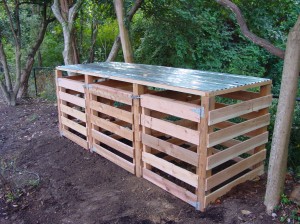Organic Farming Classics
 Sunday, November 27, 2011 at 4:57PM
Sunday, November 27, 2011 at 4:57PM While you nudge your cool season plants along through the dark winter months ahead, draw inspiration from some of the classic titles on the organic farming movement. Natural farming isn’t a new concept of course. Some of these books are based on direct observations of simple farm cultures in the east that, though sustainable methods like combining vegetation and animal manure to create humus, have maintained or improved soil fertility on tiny parcels of land that have been farmed continuously for thousands of years. Other works illustrate how organic methods like sheet composting green manure crops, restored modern era farms that had been rendered sterile by the use of chemical farming techniques, and abandoned. By the time you’ve put all these classics back on the bookshelf, you’ll be heading for the garden to create your own story on sustainable agriculture!











